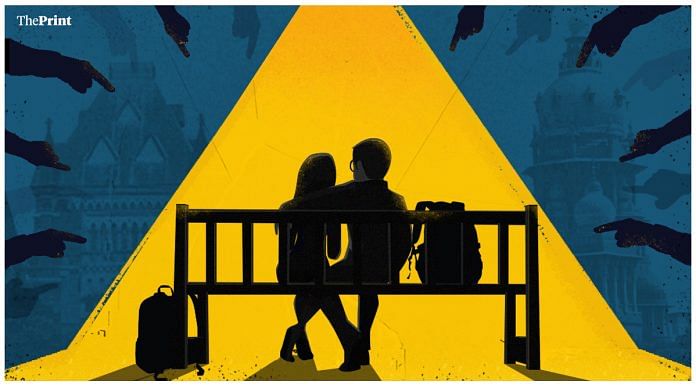How does the law view consent among “children”? How does it treat, say, two 16-year-olds in a romantic relationship? What grey areas in the Protection of Children from Sexual Offences, or POCSO Act are leading to more families filing cases against teenage couples? These are all questions that, unfortunately, have no simple answers.
In a recent order, the Nagpur Bench of the Bombay High Court observed that the consent of a minor had no value in the eyes of the law. The court was hearing a bail application for a person accused of committing penetrative sexual assault on a minor girl. The accused had argued before the court that he and the victim had a “love affair” and that the girl had willingly eloped with him. The court found no evidence of consent in the victim’s statement.
The fact is that, as the law currently stands, even if there had been consent, it would not be available as a defence to the accused, considering that the victim was a minor. The POCSO Act 2012, by defining a child as a person below 18 years of age, fixes the age of consent at 18 years. It is important to note that this is not the first time that a high court has made such an observation. Last year, in another case, while recognising that a minor’s consent was not legally valid, the Bombay High Court noted that incidents of consensual sex between minors had been a grey area under the law.
Though courts have often deferred from the strict construction of the language of cases where a defence of consent by the victim is raised, cases of consensual relationships involving minors continue to pose a challenge for courts, especially when it comes to the issue of bail. While recognising that the law sets the age of consent at 18 years, high courts have still taken consent into consideration while granting bail.
Also Read: Sex education is not family planning. That’s why we built a tool for Indian teachers first
‘Consensual’ POCSO cases
A judgment passed by the Delhi High Court granted bail to the accused while taking into consideration the possibility of a reciprocal physical relationship between the accused and the minor victim. In another case, the Meghalaya High Court has held that even though the consent of a minor has no legal validity, one cannot lose sight of the matter while a plea for bail is being considered by the court.
To deal with cases of consensual relationships between minors, courts are also “creatively interpreting” the provisions of the POCSO Act. In yet another case of a “consensual” relationship, the Calcutta High Court acquitted the accused by interpreting a provision in the POCSO Act in such a manner that it would no longer apply to instances where sexual intercourse was voluntary. In this case, the high court remarked that the Act was introduced to offer protection to innocent children from sexual offences and a draconian interpretation of its provisions would merely convert it into a tool of abuse of the process of law.
Last year, the Madras High Court had said that the POCSO Act is not intended to penalise adolescents or teenagers in romantic relationships. While quashing the criminal proceedings against the accused in this case, the court recognised that a law to protect and render justice to victims and survivors of child abuse can also be misused. The court noted that a large number of cases filed under the POCSO Act seemed to be arising out of complaints registered by the families of adolescents involved in romantic relationships, which was never the objective of the law. Subsequently, similar concerns were raised by the Delhi High Court in yet another case.
Also Read: Valentine’s Day or not, India has no infrastructure for love because it’s no internal matter
Creating awareness not enough
Noting the serious consequences of rigorous punishment prescribed under the POCSO Act, the Gujarat High Court, in another case, acknowledged the need to create legal awareness about the Act among children so that they do not inadvertently land in legal trouble. However, merely creating awareness among children will not solve the issues arising out of consensual relationships between teenagers.
In 2019, the Madras High Court discussed at length the problems arising due to the age of consent being set at 18 years and the social fact of the existence of romantic relationships between people falling below this age. The court held that the definition of “child” under the POCSO Act can be redefined as 16 years. It further called for the treatment of cases of consensual sex after the age of 16 under more liberal provisions, which could be introduced in the Act itself.
The concerns raised by these high courts are valid. The POCSO Act was enacted to punish sexual crimes against children and a different standard is required to deal with these relationships. It is the legislature’s, and not the courts’, responsibility to fix this anomaly in the law. The POCSO Act needs suitable amendments based on the realisation that consensual teenage relationships are a “social fact” and criminalising them is not helping anyone, especially children. A more nuanced approach is the need of the hour.
Apoorva is a Research Fellow with the JALDI (Justice, Access and Lowering Delays in India) Initiative at Vidhi Centre for Legal Policy. Views are personal.
(Edited by Srinjoy Dey)



